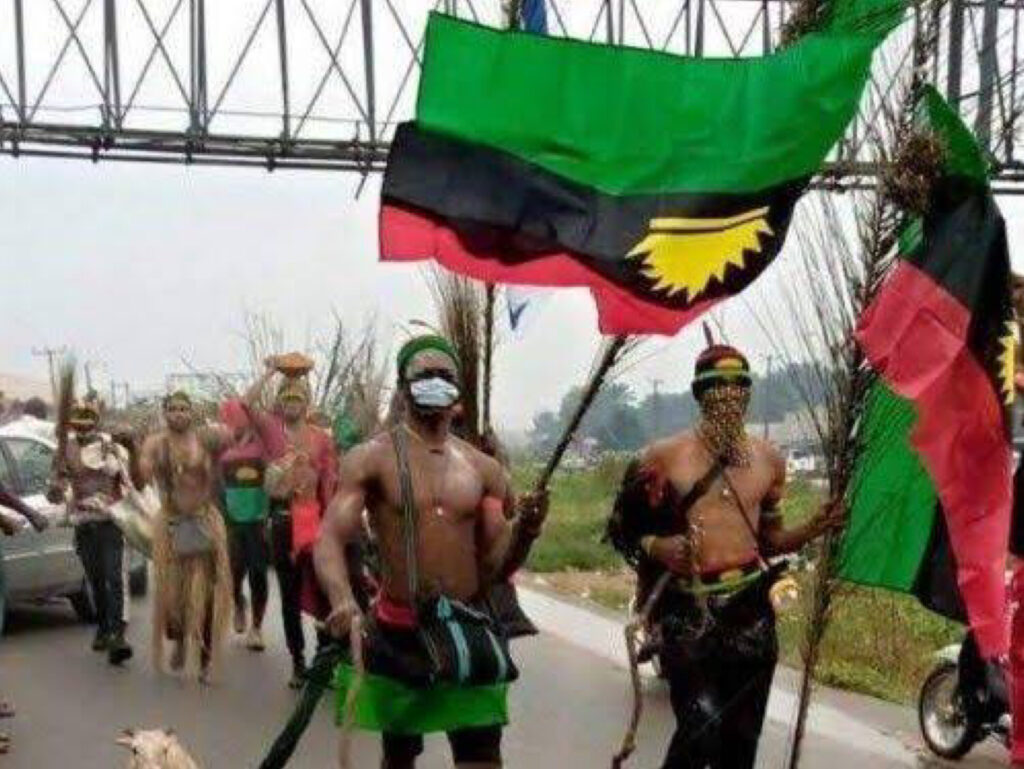IPOB Warns South-East Youths To Avoid Joining British Army
IPOB calls on Biafran youths to avoid being used as sacrificial lambs by the British government, which has no regard for you or your lives
Nigeria – The Indigenous People of Biafra (IPOB), a separatist group operating in the South Eastern part of Nigeria, has issued a strong warning to youths in the South-East, urging them to reject the British Army’s recruitment initiative, labeling it as a “deceptive” scheme designed to exploit and abandon them.
IPOB’s spokesperson, Emma Powerful, emphasized the historical neglect faced by African soldiers who fought for Britain during World War I, many of whom were never recognized or compensated, unlike their British and European counterparts.
In a statement released on Saturday, Powerful highlighted the plight of African soldiers during the war, particularly those from Nigeria, including the Igbo and other South-Eastern ethnic groups. He noted that these soldiers, along with others from the Gold Coast (now Ghana), Sierra Leone, Kenya, Uganda, and Nyasaland (now Malawi), were instrumental in Britain’s war efforts but were later disregarded.
The statement read, “The family of IPOB, under the leadership of Mazi Nnamdi Kanu, warns Biafran youths to resist the British government’s attempts to recruit them among Commonwealth citizens to fight in their future wars. IPOB calls on Biafran youths to avoid being used as sacrificial lambs by the British government, which has no regard for you or your lives. During World War I, the British and European powers exploited African soldiers to fight their battles, with over 180,000 Africans serving in the British Carrier Corps. Many of these soldiers who perished defending Britain were never acknowledged, and those who survived were sent back to Africa without compensation, while their European counterparts received recognition and rewards.”
IPOB further condemned the British government’s ongoing recruitment efforts, drawing parallels to the exploitation of African soldiers during World War II, which helped establish Britain as a global superpower. The group asserted that Biafrans would not be sacrificed again for the interests of a nation that does not recognize their humanity.
Powerful also questioned the motives behind the British Army’s recruitment drive, particularly in light of Britain’s strict visa policies for African immigrants. He argued that while Africans face significant hurdles in obtaining work visas, the British government’s relaxed approach to military recruitment appears suspicious and exploitative. “If Africans struggle to secure work visas for Britain, there is no justification for offering them an easy path to join the British Army. Biafrans should not allow themselves to be used as cannon fodder by a nation that disregards their freedom and existence,” the statement added.
IPOB also criticized Britain’s role in the Biafran conflict and ongoing subjugation of Biafrans in Nigeria, vowing to resist any attempts to exploit Biafran youths through the Commonwealth recruitment program. The group urged Biafran parents to advise their children against joining the British military, warning that they would be used as pawns in conflicts such as the war against Russia or other nations.
Instead of joining the British Army, IPOB encouraged youths to unite in the struggle to restore Biafra and achieve a peaceful and democratic exit from Nigeria. The group also reiterated its demand for the release of IPOB leader Mazi Nnamdi Kanu, who remains in solitary confinement under the custody of Nigeria’s Department of State Services (DSS) in Abuja.
In conclusion, IPOB’s statement called on the United Kingdom to recognize the legitimacy of Biafra’s quest for independence and to support its peaceful transition out of Nigeria if it is genuinely interested in the welfare of Biafrans.








